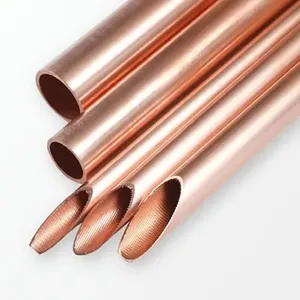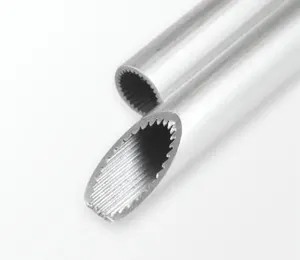Copper Pipe Hardness: An Essential Quality for Durability
Copper pipe hardness is a critical characteristic that influences the material's durability and performance in various applications. Understanding the hardness of copper pipes can help manufacturers and consumers make informed decisions about plumbing, electrical, and HVAC systems. Hardness is an indicator of the metal's resistance to deformation, wear, and scratching, making it essential for long-lasting installations.
Types of Copper Pipe Hardness
Copper pipes come in various types, and their hardness can differ based on their manufacturing process and alloy composition. Here are the primary categories:
- Annealed Copper Pipes: Soft and flexible, these pipes are treated with heat, allowing for easy bending and shaping. They are commonly used in plumbing for their good soldering properties.
- Drawn Copper Pipes: These pipes are cold-worked to increase hardness and strength. They are ideal for applications where resistance to deformation is required, such as in high-pressure systems.
- Rigid Copper Pipes: These are solid, hard pipes that are less malleable than their annealed counterparts, making them suitable for permanent installations.
- Alloyed Copper Pipes: Incorporating other metals, such as tin or phosphorus, changes the hardness and corrosion resistance, making them suitable for specialized applications.
Applications of Copper Pipe Hardness
The hardness of copper pipes is integral to their performance across various sectors. Here are some of the common applications:
- Plumbing: Hard copper pipes are essential for water supply systems, ensuring that they can withstand high pressure and resist leaks.
- HVAC Systems: The durability of copper pipes makes them a popular choice in heating, ventilation, and air conditioning, particularly for refrigerant lines.
- Electrical Wiring: Hardness ensures that copper pipes used for grounding and electrical applications maintain structural integrity and conductivity.
- Chemical Processing: Hard copper pipes resist corrosion and wear, making them suitable for transporting aggressive chemicals without degrading.
Features and Advantages of Copper Pipe Hardness
Copper pipe hardness offers various advantages that contribute to its popularity in multiple industries:
- Resistance to Deformation: Harder copper pipes can withstand pressure without bending or collapsing, ensuring safer and more efficient applications.
- Longevity: The hardness of copper increases durability, offering extended service life with minimal maintenance, reducing overall costs.
- Thermal Conductivity: Despite variations in hardness, copper maintains excellent thermal conductivity, making it suitable for heat exchange applications.
- Corrosion Resistance: Hard copper pipes are naturally resistant to corrosion, which is crucial for both plumbing and chemical processes.






















































